-
Home
-
Contributors
-
International
-
Account
-
Information
Filters
Filters
[*]
[1]
[2]
[3]
[4]
[5]
[6]
[7]
[8]
[9]
[A]
[B]
[C]
[D]
[E]
[F]
[G]
[H]
[I]
[J]
[K]
[L]
[M]
[N]
[O]
[P]
[Q]
[R]
[S]
[T]
[U]
[V]
[W]
[X]
[Y]
[Z]
-
Browse All Products > Activities and Interests > Cycling
(11)
-
Browse All Products > Activities and Interests > Earth Sciences
(107)
-
Browse All Products > Activities and Interests > Games & Jigsaws
(79)
-
Browse All Products > Activities and Interests > History
(2)
-
Browse All Products > Activities and Interests > Languages and Living Overseas
(11)
-
Browse All Products > Activities and Interests > Maritime
(4263)
-
Browse All Products > Activities and Interests > Transport
(1)
-
Browse All Products > Activities and Interests > World Reference
(1)
-
Browse All Products > Product Types > Children`s
(148)
-
Browse All Products > Product Types > Furniture
(7)
-
Browse All Products > Product Types > Globes
(113)
-
Browse All Products > Product Types > Maps & Atlases
(13092)
-
Browse All Products > Product Types > Stationery
(557)
-
Browse All Products > Product Types > Travel Accessories
(436)
-
Browse All Products > Product Types > Weather
(4)
-
Browse All Products > Publishers > AA Publishing
(38)
-
Browse All Products > Publishers > Edward Stanford
(15)
-
Browse All Products > Publishers > Freytag-Berndt Und Artaria Kg
(7)
-
Browse All Products > Publishers > Frommer`s
(10)
-
Browse All Products > Publishers > IGN
(245)
-
Browse All Products > Publishers > Kompass
(1)
-
Browse By Destination > Popular Destinations > Greece
(141)
-
Browse By Destination > Popular Destinations > Norway
(40)
-
Browse By Destination > Popular Destinations > Spain
(1)
-
Browse By Destination > Popular Destinations > USA
(1536)
-
Browse By Destination > Products By Cities > Ajaccio
(2)
-
Browse By Destination > Products By Cities > Cancun
(26)
-
Browse By Destination > Products By Cities > Copenhagen
(16)
-
Browse By Destination > Products By Cities > Dublin
(3)
-
Browse By Destination > Products By Cities > Helsinki
(5)
-
Browse By Destination > Products By Cities > Ho Chi Minh
(4)
-
Browse By Destination > Products By Cities > New York
(97)
-
Browse By Destination > Products By Cities > Paris
(6)
-
Browse By Destination > Products By Cities > Prague
(6)
-
Browse By Destination > Products By Cities > Tallinn
(3)
-
Browse By Destination > Products By Countries > Australia
(289)
-
Browse By Destination > Products By Countries > Canada
(342)
-
Browse By Destination > Products By Countries > England
(1)
-
Browse By Destination > Products By Countries > Germany
(142)
-
Browse By Destination > Products By Countries > Hungary
(13)
-
Browse By Destination > Products By Countries > Iceland
(26)
-
Browse By Destination > Products By Countries > Italy
(3)
-
Browse By Destination > Products By Countries > New Zealand
(231)
-
Browse By Destination > Products By Countries > United Kingdom
(1747)
-
Browse By Destination > Products By Regions > Alabama
(3)
-
Browse By Destination > Products By Regions > Algarve
(1)
-
Browse By Destination > Products By Regions > Azores
(17)
-
Browse By Destination > Products By Regions > Madeira
(12)
-
Browse By Destination > Products By Regions > Rome & Central Italy
(2)
-
Browse By Destination > Products By Regions > Yucatan
(1)
-
Children`s Books & Toys > Top 10 Gifts For Children
(1)
-
Electronics > Audio > DJ & Speciality Audio > CDJs
(88)
-
Electronics > GPS
(3)
-
GB::Royal Mail 2nd Class: 0.31
(169)
-
GB::Royal Mail 2nd Class: 0.76
(66)
-
GB::Royal Mail 2nd Class: 1.01
(191)
-
GB::Royal Mail 2nd Class: 3.29
(16)
-
Geolocations > Geolocations - Cities > Aachen
(1)
-
Geolocations > Geolocations - Cities > Abu Dhabi
(2)
-
Geolocations > Geolocations - Cities > Abuja
(9)
-
Geolocations > Geolocations - Cities > Addis Ababa
(10)
-
Geolocations > Geolocations - Cities > Aix-En-Provence
(2)
-
Geolocations > Geolocations - Cities > Amsterdam
(15)
-
Geolocations > Geolocations - Cities > Ankara
(31)
-
Geolocations > Geolocations - Cities > Antwerp
(27)
-
Geolocations > Geolocations - Cities > Arkangelsk
(76)
-
Geolocations > Geolocations - Cities > Berne
(1)
-
Geolocations > Geolocations - Cities > Bilbao/Bilbo
(1)
-
Geolocations > Geolocations - Cities > Brasov
(6)
-
Geolocations > Geolocations - Cities > Chisinau
(1)
-
Geolocations > Geolocations - Cities > Cracow
(9)
-
Geolocations > Geolocations - Cities > Estoril
(11)
-
Geolocations > Geolocations - Cities > Florence
(1)
-
Geolocations > Geolocations - Cities > Malmo
(1)
-
Geolocations > Geolocations - Continents > Africa
(175)
-
Geolocations > Geolocations - Continents > America North, Central And Caribbean
(52)
-
Geolocations > Geolocations - Continents > America South
(45)
-
Geolocations > Geolocations - Continents > Antarctica
(21)
-
Geolocations > Geolocations - Continents > Arctic
(10)
-
Geolocations > Geolocations - Continents > Asia
(612)
-
Geolocations > Geolocations - Continents > Atlantic Ocean
(3)
-
Geolocations > Geolocations - Continents > Australia And Oceania
(13)
-
Geolocations > Geolocations - Continents > Europe
(600)
-
Geolocations > Geolocations - Continents > Indian Ocean
(1)
-
Geolocations > Geolocations - Continents > World
(33)
-
Geolocations > Geolocations - Countries > Afghanistan
(19)
-
Geolocations > Geolocations - Countries > Albania
(5)
-
Geolocations > Geolocations - Countries > Armenia
(6)
-
Geolocations > Geolocations - Countries > Austria
(5)
-
Geolocations > Geolocations - Countries > Belgium
(2)
-
Geolocations > Geolocations - Countries > Bosnia-Herzegovina
(4)
-
Geolocations > Geolocations - Countries > British Indian Ocean Territories
(1)
-
Geolocations > Geolocations - Countries > Chile
(63)
-
Geolocations > Geolocations - Countries > Croatia
(4)
-
Geolocations > Geolocations - Countries > Cyprus
(3)
-
Geolocations > Geolocations - Countries > Czech Republic
(1)
-
Geolocations > Geolocations - Countries > Denmark
(2)
-
Geolocations > Geolocations - Countries > United States of America
(1)
-
Geolocations > Geolocations - Regions > Aconcagua
(13)
-
Geolocations > Geolocations - Regions > Amazon
(2)
-
Geolocations > Geolocations - Regions > Annapurna Region
(7)
-
Geolocations > Geolocations - Regions > Brittany
(1)
-
Geolocations > Geolocations - Regions > Crimea
(10)
-
Geolocations > Geolocations - Regions > Scottish Islands
(4)
-
Geolocations > Geolocations - Supra Regions > Balkans
(2)
-
Geolocations > Geolocations - Supra Regions > Central America
(2)
-
Geolocations > Geolocations - Supra Regions > Hebrides, Inner & Outer
(7)
-
Geolocations > Geolocations - Supra Regions > Orkney & Shetland
(6)
-
Gifts & Stationery > Gifts > Gifts For Cyclists
(1)
-
Gifts & Stationery > Gifts > Gifts For History Buffs
(3)
-
Gifts & Stationery > Gifts > Gifts For Map Lovers
(12)
-
Gifts & Stationery > Gifts > Gifts For The Home
(4)
-
Gifts & Stationery > Gifts > Gifts For Travel Addicts
(3)
-
Gifts & Stationery > Gifts > Gifts For Walkers
(2)
-
Gifts & Stationery > Gifts > Scratch Maps
(2)
-
Gifts & Stationery > Gifts > Top 10 Gifts Under £10
(1)
-
Globes > Other Home & Office Decorations > Posters
(9)
-
Globes > Other Home & Office Decorations > Prints
(1)
-
Home & Garden > Decor > Flags & Windsocks
(2)
-
Home & Garden > Decor > World Globes
(95)
-
Lifestyle & Furniture
(72)
-
Lifestyle & Furniture > Furniture > Automobile Decor
(1)
-
Lifestyle & Furniture > Furniture > Writing Collection
(3)
-
Lifestyle & Furniture > Home & Office > Board Games
(20)
-
Maps & Atlases > Bestselling Publishers > A-Z
(19)
-
Maps & Atlases > Bestselling Publishers > Ordnance Survey
(415)
-
Maps & Atlases > By Interests > World War I Maps
(1)
-
Maps & Atlases > By Product Type > Historical Map Reproductions
(3)
-
Maps & Atlases > By Product Type > Road Maps & Atlases
(233)
-
Maps & Atlases > By Product Type > Wall Maps
(205)
-
Maps & Atlases > Popular Searches > UK Walking Maps
(1)
-
Maritime Books & Charts > Maritime Books > Maritime Fiction
(1)
-
Maritime Books & Charts > Maritime Books > Maritime Non-Fiction
(1)
-
Maritime Books & Charts > Maritime Books > RYA - Royal Yachting Association
(1)
-
Maritime Books & Charts > Nautical Gifts > Clocks & Barometers
(1)
-
Maritime Books & Charts > Nautical Gifts > Decorative Instruments
(2)
-
Maritime Books & Charts > Nautical Gifts > Novelty
(8)
-
Maritime Books & Charts > Navigation Supplies > Logbooks
(1)
-
Maritime Books & Charts > Official Publications > IMO
(5)
-
Maritime Books & Charts > Official Publications > Witherbys
(1)
-
Media
(17990)
-
Media > Books
(20134)
-
Media > Books > Non-Fiction > Travel Books
(11566)
-
Media > DVDs & Videos
(7)
-
Media > Magazines & Newspapers
(2)
-
Memory > Flash Memory > Flash Memory Cards
(11)
-
Office Supplies > Filing & Organisation
(2)
-
Office Supplies > Filing & Organisation > Binding Supplies
(627)
-
Office Supplies > Filing & Organisation > Calendars
(2)
-
Office Supplies > Filing & Organisation > Calendars, Organisers & Planners
(28)
-
Office Supplies > General Office Supplies
(1)
-
Office Supplies > General Office Supplies > Paper Products > Stationery
(206)
-
Pages > Accessorise Your Adventure
(1)
-
Pages > Adventuress
(7)
-
Pages > And So The Adventure Begins
(5)
-
Pages > Best Books Under The Sun
(9)
-
Pages > Bestselling Maps & Atlases
(5)
-
Pages > Books of the Month
(1)
-
Pages > Buy One Get One Half Price
(24)
-
Pages > Christmas > Beautiful Books
(4)
-
Pages > Christmas > Biographies
(3)
-
Pages > Christmas > Brain Food
(6)
-
Pages > Christmas > Bristol Gifts
(2)
-
Pages > Christmas > Children’s Books
(7)
-
Pages > Christmas > Family Games
(7)
-
Pages > Christmas > Fantastic Fiction
(5)
-
Pages > Christmas > Food & Drink Books
(15)
-
Pages > Christmas > Harry Potter
(2)
-
Pages > Christmas > Home & Office
(3)
-
Pages > Christmas > Humour
(10)
-
Pages > Christmas > London Gifts
(2)
-
Pages > Christmas > Map Books
(3)
-
Pages > Christmas > Maps
(1)
-
Pages > Christmas > Something Special
(3)
-
Pages > Christmas > Toys Games & More
(8)
-
Pages > Christmas > Travel Accessories
(7)
-
Pages > Christmas > Travel Writing
(6)
-
Pages > Dive Into Summer
(3)
-
Pages > Father`s Day
(9)
-
Pages > Getaway
(7)
-
Pages > Great Outdoors
(1)
-
Pages > Just Arrived
(2)
-
Pages > Make a Note
(3)
-
Pages > Mother`s Day
(6)
-
Pages > Outdoors & Leisure > Popular Publishers > Cicerone Guides
(4)
-
Pages > Outdoors & Leisure > The Great Outdoors > Adventure Sports
(19)
-
Pages > Outdoors & Leisure > The Great Outdoors > Fishing
(1)
-
Pages > Outdoors & Leisure > The Great Outdoors > Maritime
(1)
-
Pages > Read Your Way
(5)
-
Pages > Relaxing This Summer
(10)
-
Pages > Sale
(11)
-
Pages > School Holidays
(7)
-
Pages > School`s Out For Summer
(2)
-
Pages > Serious Fun
(5)
-
Pages > Staff Picks
(4)
-
Pages > Valentine`s Day
(7)
-
Pages > We Love London
(10)
-
Toys & Games > Games > Board Games
(31)
-
Toys & Games > Puzzels > Jigsaw Puzzles
(11)
-
Travel Accessories > Travel Essentials > Flags
(1)
-
Travel Guides & Books
(4111)
-
Travel Guides & Books > Bestselling Travel Guides > Eyewitness Guides
(129)
-
Travel Guides & Books > Bestselling Travel Guides > Rough Guides
(2)
-
Travel Guides & Books > Bestselling Travel Guides > Top 10 Travel Guides
(2)
-
Travel Guides & Books > By Destination > France
(689)
-
Travel Guides & Books > By Destination > Italy
(330)
-
Travel Guides & Books > By Destination > Spain
(284)
-
Travel Guides & Books > By Interests > Art & Architecture
(17)
-
Travel Guides & Books > By Interests > Climbing
(33)
-
Travel Guides & Books > By Interests > Expeditions
(15)
-
Travel Guides & Books > By Interests > Food & Drink
(43)
-
Travel Guides & Books > By Interests > History
(856)
-
Travel Guides & Books > By Interests > Natural History
(364)
-
Travel Guides & Books > By Interests > Photography
(23)
-
Travel Guides & Books > By Interests > Transport
(30)
-
Travel Guides & Books > By Interests > Travelling
(872)
-
Travel Guides & Books > By Interests > Walking
(1040)
-
Travel Guides & Books > By Product Type > Books
(1475)
-
Travel Guides & Books > By Product Type > Children`s
(1423)
-
Travel Guides & Books > By Product Type > Fiction
(1239)
-
Travel Guides & Books > By Product Type > Travel Literature
(145)
Price: £ - £
Available
-
In April 2006 a small
British peace-keeping
force was sent to Helmand
province in southern
Afghanistan. Within weeks
they were cut off and
besieged by some of the
world`s toughest
fighters: the infamous
Taliban, who were
determined to send the
foreigners home again.
Defence Secretary John
Reid had hoped that
Operation Herrick 4 could
be accomplished without a
shot being fired;
instead, the Army was
drawn into the fiercest
fighting it had seen for
fifty years. Millions of
bullets and thousands of
lives have been expended
since then in an
under-publicized but
bitter conflict whose end
is still not in
sight.Some people
consider it the fourth
Anglo-Afghan War since
Victorian times. How on
earth did this happen?
And what is it like for
the troops on the front
line of the `War on
Terror`? James Fergusson
takes us to the dark
heart of the battle zone.
Here, in their own words
and for the first time,
are the young veterans of
Herrick 4. Here,
unmasked, are the
civilian and military
officials responsible for
planning and executing
the operation. Here,
too, are the Taliban
themselves, to whom
Fergusson gained unique
and extraordinary
access.Controversial,
fascinating and
occasionally downright
terrifying, ”A Million
Bullets” analyses the
sorry slide into war in
Helmand and asks this
most troubling question:
could Britain perhaps
have avoided the violence
altogether?
Available
-
May 2011, Afghanistan:
Camp Bastion is under
attack, The Sun`s
Defence Editor is about
to catch the wrong
helicopter, and a famous
TV war reporter is
missing half his kit and
wants his trainers back.
Amid the chaos,
Christian Hill is
preparing to lead his
Combat Camera Team on the
British Army`s first big
operation of the Helmand
summer, inching through
the IED-riddled fields of
the notorious Green Zone.
As a captain in the Media
Operations Group, his
job is to promote the war
to the British media -
and make it look like
things are under control
and getting better.
Available
-
Where can you buy 913
Kalashnikovs? How do you
tell a friend her expat
love is never coming
back? What`s it like to
date a mercenary? In
2007, Canadian
journalist Heidi
Kingstone arrived in
Kabul, eager to uncover
the mysteries and shadows
of one turbulent corner
of the world. Over the
next four years, she
encountered idealists and
chancers, gunrunners and
warlords. She interviewed
generals and partied with
powerbrokers and
fashionistas. A
passionate advocate for
women`s rights, she
witnessed women as
heroes, as victims, as
freeloaders, as rivals.
Heidi`s account of the
last years of
ISAF-controlled Kabul is
vividly atmospheric,
deeply personal and at
times shockingly painful.
From air bases to
brothels, she tells of
disastrous development
programs and hopeful
couplings against the
backdrop of our longest
war. But as her friends
fall victim to ambush,
kidnap and suicide
bombing, no amount of
booze and adrenalin can
soften the devastating
realities of NATO`s new
Afghanistan. ”This
wonderful cocktail of
images and impressions is
far more than the sum of
its parts. For it offers
a deep draught of the
awful excitement of
living on the edge of
somebody else`s war.An
experience that no
Westerner in Afghanistan
would want to have
missed, or to repeat.”
Sherard Cowper-Coles,
former British ambassador
to Afghanistan. ”Heidi
is sharp, funny,
utterly irreverent,
often poignant and always
entertaining” Kate Fox,
author of Watching the
English
Available
-
`Nowzad was a gentle
giant when it came to
taking treats. He never,
ever snatched. To me it
was just further evidence
that, deep inside,
there was a great dog
struggling to find his
way out` When Pen
Farthing brings stray
dogs Nowzad and Tali back
from his tour of
Afghanistan, little does
he know what he has
begun. Suddenly he has
four dogs to look after -
two of whom have never
been house-trained. And
soon he is inundated with
requests from other
Marines and soldiers to
help bring their rescued
dogs home. Whether it`s
little Helmand, Fubar or
Beardog, Pen does his
utmost to give these dogs
the chance they deserve.
No Place like Home is the
true story of one man`s
courage and persistence
as he struggles to give
his dogs at home, and
those still in
Afghanistan, the best
possible chance. It will
warm - and break - the
hearts of dog lovers
everywhere.
Available
-
When Pen Farthing brought
two dogs home from his
tour of Afghanistan,
little did he know what
he had begun. Twelve
months later, he has
left the Marines, after
20 years service, to run
his charity full time.
But he barely has a
chance to miss life in
action, as he is
inundated with requests
from marines and soldiers
to give more rescued dogs
the chance of a new life
in the West. Whether it`s
little Helmand, Fubar or
Beardog - or the unruly
litter known as the Char
Badmashis or Four
Hooligans - Pen does his
upmost to give these dogs
the chance they deserve.
It is a frustrating and
sometimes dangerous
process, and while some
dogs make it out to
safety, others,
tragically, do not. But
a look out the window to
see his own Afghan
hounds, Now Zad and
Tali, with bright eyes
and glossy coats tells
him it`s all worthwhile.
Like his ”Sunday
Times” bestseller
”One Dog at a Time”,
”No Place Like Home”
is the story of one man`s
courage and persistence
in the face of often
insurmountable odds. It
will warm - and break -
the hearts of dog lovers
everywhere.
Available
-
The Afghan war will be
remembered for its
politics more than its
combat. There were few,
if any, major battles.
The longest war in
American history has left
1, 800 U.S. troops dead,
fewer than half the
number killed in Iraq.
The violence is mostly
confined to the
farmlands, deserts, and
mountains, playing out
in small ambushes,
hit-and-run attacks, and
assassinations. The
United States came to
Afghanistan on a simple
mission: to avenge the
September 11 attacks and
drive the Taliban from
power. This took less
than two months. The
story of the next decade
is about how the ensuing
fight for power and money
- the power and money
supplied to one of the
poorest nations on earth
in ever-greater amounts -
left the region even more
dangerous than before the
first troops arrived. At
the centre of this story
is the Karzai family. The
president and his
brothers began the war as
symbols of a new
Afghanistan - moderate,
educated, fluent with
East and West - the
antithesis of the brutish
and backwards Taliban
regime. Now, with the
war in shambles, they
are in open conflict with
each other and their
Western allies.In their
experience one can find a
war`s worth of mistakes,
squandered hopes, and
wasted chances. Nothing
encapsulates the essence
of the war`s trajectory -
and the descent from
optimism to despair,
friends to enemies - as
neatly as the story of
the Karzai family itself.
Available
-
An Intimate War tells the
story of the last
thirty-four years of
conflict in Helmand
Province, Afghanistan as
seen through the eyes of
the Helmandis. In the
West, this period is
often defined through
different lenses - the
Soviet intervention, the
civil war, the Taliban,
and the post-2001
nation-building era. Yet,
as experienced by local
inhabitants, the Helmand
conflict is a perennial
one, involving the same
individuals, families
and groups, and driven
by the same arguments
over land, water and
power. This book - based
on both military and
research experience in
Helmand and 150
interviews in Pashto -
offers a very different
view of Helmand from
those in the media. It
demonstrates how
outsiders have most often
misunderstood the ongoing
struggle in Helmand and
how, in doing so, they
have exacerbated the
conflict, perpetuated it
and made it more violent
- precisely the opposite
of what was intended when
their interventions were
launched. Mike Martin`s
oral history of Helmand
underscores the absolute
imperative of
understanding the highly
local, personal, and
non-ideological nature of
internal conflict in much
of the `third` world.
Available
-
From the award-winning
co-author of `I Am
Malala`, this book asks
just how the might of
NATO, with 48 countries
and 140, 000 troops on
the ground, failed to
defeat a group of
religious students and
farmers? How did it go so
wrong? `Farewell Kabul`
tells how the West turned
success into defeat in
the longest war fought by
the United States in its
history and by Britain
since the Hundred Years
War. It is the story of
well-intentioned men and
women going into a place
they did not understand
at all. And how, what
had once been the right
thing to do had become a
conflict that everyone
wanted to exit. It has
been a fiasco which has
left Afghanistan still
one of the poorest and
most dangerous nations on
earth. The leading
journalist on the region
with unparalleled access
to all key decision
makers, Christina Lamb
is the best-selling
author of `The Africa
House` and `I Am Malala`,
co-authored with Nobel
Peace Prize winner Malala
Yousafzai. This
revelatory and personal
account is her final
analysis of the realities
of Afghanistan, told
unlike anyone before.
Available
-
Located at the
intersection of Asia and
the Middle East,
Afghanistan has been
strategically important
for thousands of years.
Its ancient trade routes
and strategic position
between India, Inner
Asia, China, Persia and
beyond has meant the
region has been subject
to frequent invasions.
Modern Afghanistan is a
culturally and ethnically
diverse country, but one
divided by conflict,
political instability and
by mass displacements of
its people.Jonathan L.
Lee places the current
conflict in Afghanistan
in its historical context
and challenges many of
the West`s preconceived
ideas about the country.
Lee chronicles the
region`s monarchic rules
and the Durrani dynasty,
focusing on the reigns of
each ruler and their
efforts to balance
tribal, ethnic,
regional and religious
factions, moving on to
the struggle for social
and constitutional reform
and the rise of Islamic
and Communist factions.
He offers new cultural
and political insights
from Persian histories,
the memoirs of Afghan
government officials,
British government and
India Office archives,
recently released cia
reports and WikiLeaks
documents. Lee also sheds
new light on the
country`s foreign
relations, its internal
power struggles and the
impact of foreign
military interventions
such as the `War on
Terror`.
Available
-
A riveting, real-life
equivalent of The Kite
Runner: A powerful and
profoundly moving story
of a young couple willing
to risk everything for
love. ”She is his
Juliet and he is her
Romeo, and her family
has threatened to kill
them both...” This is
the heartrending account
of Zakia and Mohammad
Ali, a couple from
opposing Islamic sects,
who defying their
society`s norms have left
behind everything they
know and are quite
literally risking their
lives for their love. She
is a Sunni, he is a
Shia, but as friends
from childhood Zakia and
Mohammad Ali could never
have predicted that their
love would anger their
families so much that
they would be forced to
leave their homes finding
refuge in the harsh
terrain of the Afghani
mountains. Without money
or passports they rely on
the kindness of strangers
to house them for a
couple of days at a time
as they remain on the
run, never deterred. New
York Times journalist,
Rod Nordland, has
chronicled the plight of
the young lovers telling
their extraordinary story
of courage, perseverance
and love in one of the
world`s most troubled
countries.This moving
love story is told
against the bigger
backdrop of the horrific
but widespread practices
that women are subjected
to in Afghanistan.
Available
-
`To read this book is to
understand Afghanistan as
it exists today. This
haunting memoir traces
the unimaginable odyssey
of one family whose world
has collapsed.. .Poetic,
powerful, and
unforgettable.` Khaled
Hosseini, author of The
Kite Runner. Qais Akbar
Omar was eleven when a
brutal civil war engulfed
Kabul. For Qais, it
brought an abrupt end to
a childhood filled with
kites and cousins in his
grandfather`s garden: one
of the most convulsive
decades in Afghan history
had begun. Ahead lay the
rise of the Taliban,
and, in 2001, the
arrival of international
forces. A Fort of Nine
Towers is the story of
Qais, his family and
their determination to
survive these upheavals
as they were buffeted
from one part of
Afghanistan to the next.
Drawing strength from
each other, and their
culture and faith, they
sought refuge for a time
in the Buddha caves of
Bamyan, and later with a
caravan of Kuchi nomads.
When they eventually
returned to Kabul, it
became clear that their
trials were just
beginning.
Available
-
What happens when you
reach the threshold of
life and death - and come
back? As long as humans
have lived on the planet,
there have been wars,
and injured soldiers and
civilians. But today, as
we engage in wars with
increasingly
sophisticated technology,
we are able to bring
people back from ever
closer encounters with
death. Historian Emily
Mayhew explores the
reality of medicine and
injury in wartime, from
the trenches of World War
One to the plains of
Afghanistan and the
rehabilitation wards of
Headley Court in Surrey.
Mixing vivid and
compelling stories of
unexpected survival with
astonishing insights from
the front line of
medicine, A Heavy
Reckoning is a book about
how far we have come in
saving, healing and
restoring the human body.
From the plastic surgeon
battling to restore
function to a blasted
hand to the double
amputee learning to walk
again on prosthetic legs,
Mayhew gives us a new
understanding of the
limits of human life and
the extraordinary costs
paid physically and
mentally by casualties
all over the world.
Available
-
In a little beauty school
in the war zone of Kabul,
a community of women
comes together, all with
stories to tell. DEBBIE,
the American hairdresser
who co-founds the
training salon. As the
burqas are removed in
class, curls are coiffed
and make-up is applied,
Debbie`s students share
with her their stories -
and their hearts. MINA,
forcibly married to a man
in repayment of a family
debt and threatened with
having her child taken
away. ROSHANNA, a
tearful young bride
terrified her in-laws
will discover she`s not a
virgin. And NAHIDA, the
prize pupil who bears the
scars of her Taliban
husband`s approval. In
the Kabul Beauty School,
these women and many
others find a safe haven
and the seeds of their
future independence. From
the bestselling author of
THE LITTLE COFFEE SHOP OF
KABUL, this is an
eye-opening, inspiring
and enthralling story.
Available
-
In 2005, a group of
Afghan actors endeavored
to create an unusual
dramatic performance--one
that would bring theater
to a region wounded after
years of war with the
Taliban and offer hope
for healing. ”A Night
in the Emperor`s
Garden” is the
captivating account of
their resulting play and
a rich exploration of the
region`s culture. In
preparation, for five
months, the group
tirelessly reworked
Shakespeare`s ”Love`s
Labour`s Lost” into
their own Dari language
while the members brought
their own experiences to
the interpretation. One
actor was a police
detective and widow
determined to create
images of strong women.
Another had trained at
Kabul University before
fleeing to Pakistan as a
refugee. A third had
played the title role in
the acclaimed film
”Osama, ” yet was a
beggar who could barely
read and write. Joined by
a French actress who
served as director and
several other
enthusiasts, these
actors performed before
royalty and street
vendors alike for one
night amid the ruins of a
magnificent garden laid
out five centuries
earlier by Emperor Babur.
For the first time in
thirty years, men and
women stood on stage
together as they worked
toward a new era in
Afghanistan.Qais Akbar
Omar and Stephen
Landrigan, both involved
in the production, have
captured its exuberance
and optimism along with
the actors` joys and
sorrows in the decade
following the play.
Revealing a side of
Afghanistan largely
unknown to outsiders,
”A Night in the
Emperor`s Garden” tells
the magical story of an
artistic achievement with
universal appeal.
Available
-
Haunting stories from the
Soviet-Afghan War from
the winner of the Nobel
Prize in Literature `A
masterpiece of reportage`
(New York Review of
Books)- A new translation
based on the updated and
expanded text - From 1979
to 1989 Soviet troops
engaged in a devastating
war in Afghanistan that
claimed thousands of
casualties on both sides.
While the Soviet Union
talked about a
`peace-keeping` mission,
the dead were shipped
back in sealed zinc
coffins. Boys in Zinc
presents the honest
testimonies of soldiers,
doctors and nurses,
mothers, wives and
siblings who describe the
lasting effects of war.
Weaving together their
stories, Svetlana
Alexievich shows us the
truth of the
Soviet-Afghan conflict:
the killing and the
beauty of small everyday
moments, the shame of
returned veterans, the
worries of all those left
behind. When it was first
published in the USSR in
1991, Boys in Zinc
sparked huge controversy
for its unflinching,
harrowing insight into
the realities of war.
Available
-
In a remote outpost of
Now Zad, in Helmand
Province, Pen Farthing`s
tour of duty will change
his life forever, but
for entirely unexpected
reasons.. .Appalled by
the horrors of a local
dog fight, he intervenes
to free the victims. One
of these dogs finds his
way into the Marine
compound - and into Pen`s
heart. Soon other strays
are being drawn to the
sanctuary provided by
Pen`s makeshift pound,
including one young mum
who crawls under the
compound fence carrying
her newborn pups to
safety. But as his time
in Helmand draws to an
end, Pen cannot leave
the dogs of Now Zad to
their own fates. He
begins hatching plans to
help them escape to a
better life.
Available
-
This picture book tells
the story of 10-year-old
refugee Ali who,
accompanied by his
grandmother, flees his
home country of
Afghanistan to avoid the
conflict caused by war.
Told in Ali`s own words,
it documents the feelings
of alienation,
separation and suffering
that war can place on
immigrant children and
their families, and the
thread of hope that can
help them overcome their
ordeal. The BAFTA
award-winning Seeking
Refuge stories were
originally produced as
animations for the BBC.
These powerful and
evocative stories have
now been captured in book
form as rich, visual
testimonies of the
torment, hope and
resolution of young
refugees who are seeking
asylum and adjusting to
life in new countries all
over the world. The
series of five books form
an excellent
cross-curricular resource
that looks at asylum,
war, separation and
integration and what it
is to be a refugee today
making them ideal for
tying into Refugee Week.
Available
-
`To risk my life had to
mean something. Otherwise
what was it all for?`
Gulwali Passarlay was
sent away from
Afghanistan at the age of
twelve, after his father
was killed in a gun
battle with the US Army.
Smuggled into Iran,
Gulwali began a
twelvemonth odyssey
across Europe, spending
time in prisons,
suffering hunger, making
a terrifying journey
across the Mediterranean
in a tiny boat, and
enduring a desolate month
in the camp at Calais.
Somehow he survived, and
made it to Britain, no
longer an innocent child
but still a young boy
alone. In Britain he was
fostered, sent to a good
school, won a place at a
top university, and was
chosen to carry the
Olympic torch in 2012.
Gulwali wants to tell his
story - to bring to life
the plight of the
thousands of men, women
and children who are
making this perilous
journey every day. One
boy`s experience is the
central story of our
times. This memoir
celebrates the triumph of
courage and determination
over adversity.
Available
-
In its earliest days,
the American-led war in
Afghanistan appeared to
be a triumph - a `good
war` in comparison to the
debacle in Iraq. It has
since turned into one of
the longest and most
expensive wars in recent
history. The story of how
this good war went so bad
may well turn out to be a
defining tragedy of the
twenty-first century -
yet, as acclaimed war
correspondent Jack
Fairweather explains, it
should also give us
reason to hope for an
outcome grounded in
Afghan reality. In The
Good War, Fairweather
provides the first full
narrative history of the
war in Afghanistan, from
the 2001 invasion to the
2014 withdrawal. Drawing
on hundreds of
interviews, previously
unpublished archives,
and months of experience
living and reporting in
Afghanistan, Fairweather
traces the course of the
conflict from its
inception after 9/11 to
the drawdown in 2014. In
the process, he explores
the righteous intentions
and astounding hubris
that caused the West`s
strategy in Afghanistan
to flounder, refuting
the long-held notion that
the war could have been
won with more troops and
cash.Fairweather argues
that only by accepting
the limitations in
Afghanistan - from the
presence of the Taliban
to the ubiquity of poppy
production to the
country`s inherent
unsuitability for rapid,
Western-style development
- can we help to restore
peace in this shattered
land. A timely lesson in
the perils of
nation-building and a
sobering reminder of the
limits of military power,
The Good War leads
readers from the White
House Situation Room to
Afghan military outposts,
from warlords` palaces
to insurgents` dens, to
explain how the US and
its British allies might
have salvaged the Afghan
campaign - and how we
must rethink other `good`
wars in the future.


 United Kingdom
United Kingdom
 France
France
 Germany
Germany
 Netherlands
Netherlands
 Sweden
Sweden
 USA
USA
 Italy
Italy
 Spain
Spain


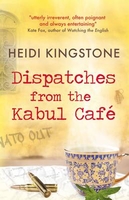


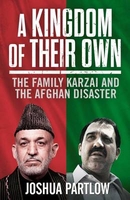

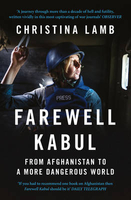

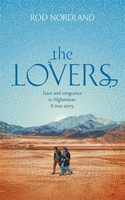
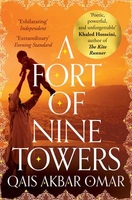


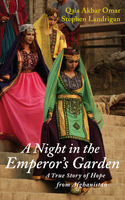

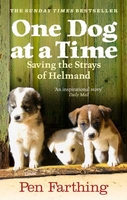
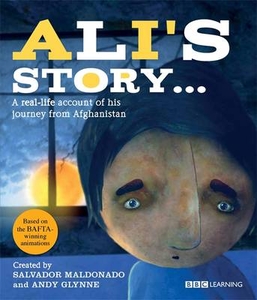


 Denmark
Denmark